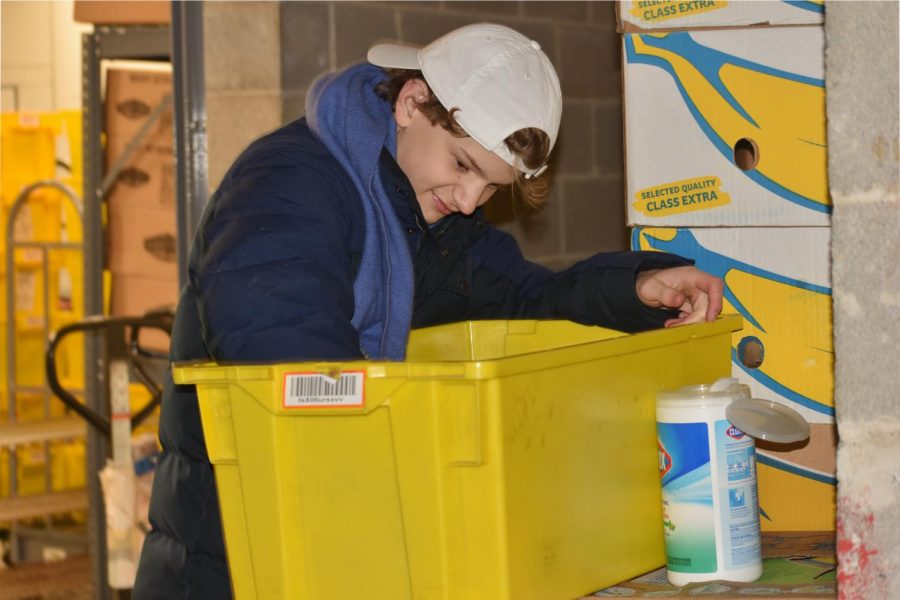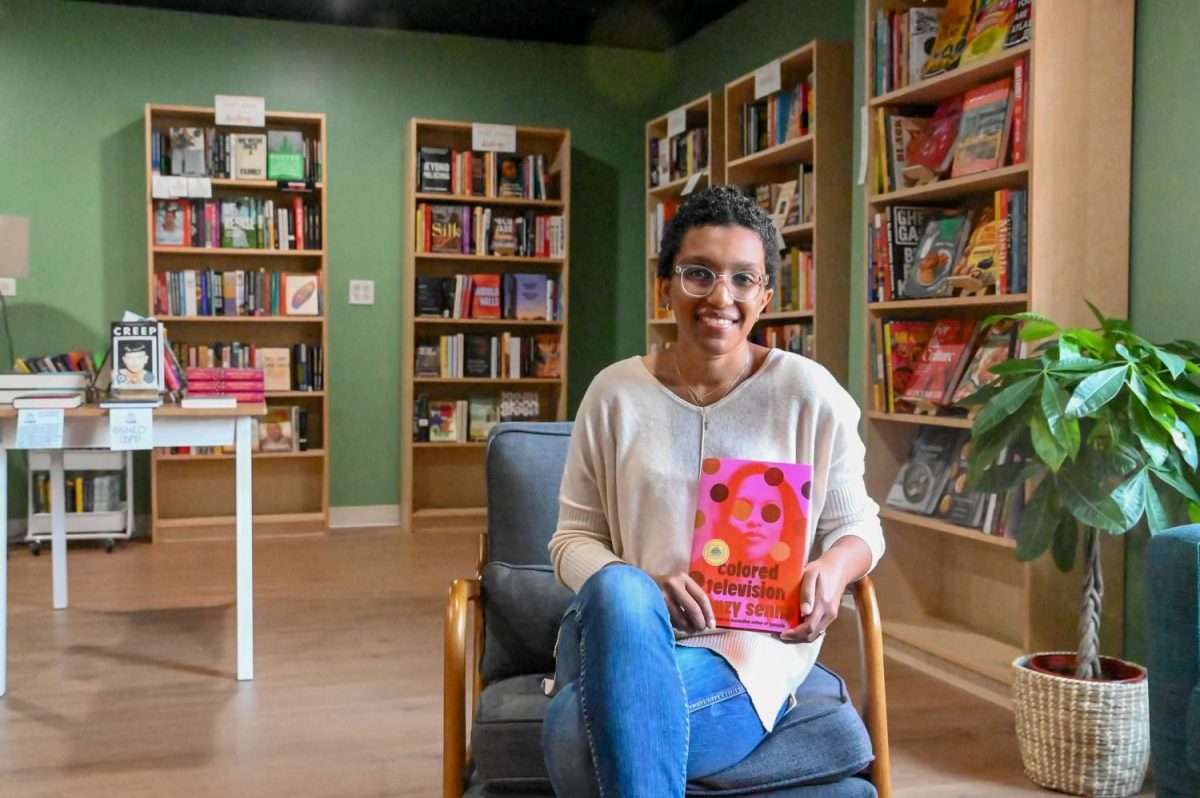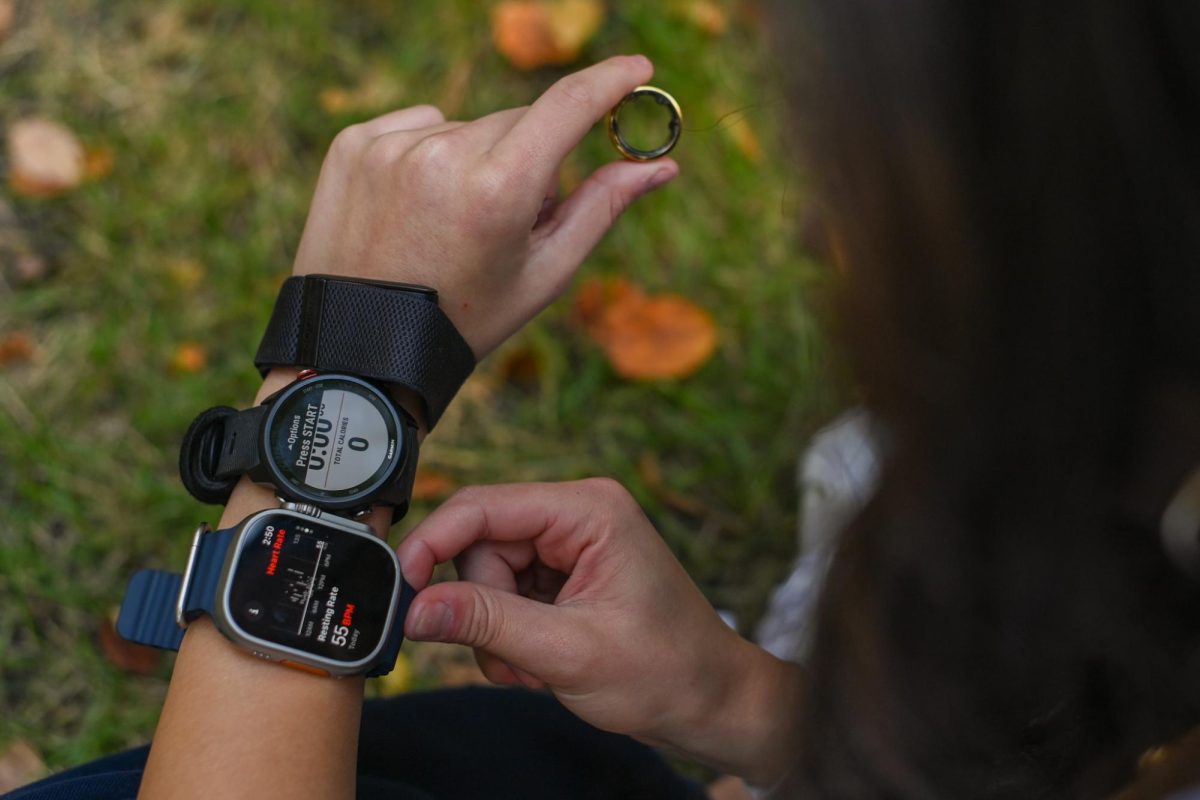Students emerge from year of service with widened world view
SIGNIFICANT SERVICE: While fulfilling the sophomore year of service, some students have found a passion at their service site, and many continue to volunteer after the required 30 hours have been completed.
January 31, 2023
Searching though long lists of possibilities, sophomores have begun the arduous and complex quest to find a service learning project that works for them. They have sent emails, gathered permission slips, and set up rides to weekly volunteer assignments in schools, neighborhood clubs and senior centers.
Students are required to complete 30 hours of community service to graduate from U-High, and sophomores – most of whom have by now picked a project that will be their focus for the next few months – are well aware of the requirement. Often, service is seen as a task to get done as efficiently as possible, particularly while they are juggling schoolwork and other commitments.
But some students say their projects turned out to mean far more than they first imagined, creating lasting bonds, opening up new interests and surprising even the students themselves.
“I feel like I honestly learned so much more from the kids than I’ve ever learned from someone else,” said Yolo Martinez, a junior who did her service at the Resurrection Project, where she helped supervise children whose parents were taking part in therapy. Yolo was there to help children, but she said her service time there may actually have benefitted herself more.
“They really taught me a lot about patience and the importance of really seeing someone beyond a small mistake that they make,” Yolo said. “Little kids have tantrums but they’re way more than just those tantrums.”
The service learning requirement at U-High has been around for at least 20 years. During two years of the pandemic the requirement was waived then modified, but it resumed last year.
The projects do not always go exactly as planned, students said. Not everyone landed in their top choice or even in a field they thought they wanted to pursue. Even in those moments, though, some students said their experiences turned out to widen their world views.
Alex Fogel, a junior, wanted to work at a hospital but didn’t get a call back in time. They ended up choosing Habitat for Humanity’s ReStore, where people can buy gently used items for their homes. Being part of the operation, Alex said, turned out to create new bonds that they didn’t expect: a close community formed within the staff.
The key, some students said, was to put aside the notion that the service project was a requirement or a line on a college application, and to really dig into the experience itself.
Sienna Yamini, a junior, volunteered at the Hyde Park Refugee Project, an organization that assigns tutors to children of families who are new to the United States. For most of her time, Sienna said, she tutored the same child whose first language was Spanish. She recalled how quiet and reserved he had been in the early days but how much he opened up later on.
People who are not fully engaged in their projects, she said, might miss out on the joy of that.
“The kids all had their own stories,” Sienna added. “If you never actually interacted with them, you never would have found that out.”
Katie Williams, a junior, volunteered in the office of Roderick Sawyer, alderperson for Chicago’s Sixth Ward which includes the neighborhoods of Chatham, Chesterfield, Englewood, Greater Grand Crossing, Park Manor and Auburn-Gresham. There, she assisted with paperwork but also led a project to create a community gathering of block club leaders in the area.
“The main way I connected was just seeing the insides of my community more, seeing how the city works and how aldermanic offices’ processes are the backbone of the community,” Katie said.
Katie had advice to those picking service sites: Choose one that truly matters to you, not something that will be easy to finish or convenient to get to.
Katie Clendenning, the U-High service learning coordinator since 2021, echoed that guidance.
Throwing yourself into the experience is essential, she said. “That’s where you see the most growth and change – if you are open to getting that humility to say: ‘I’m here. I’m ready to help. But also I’m ready to listen.’”












